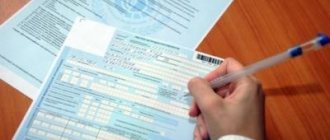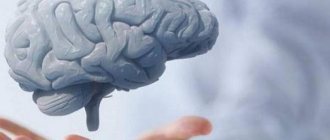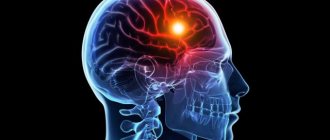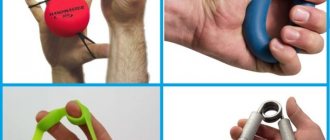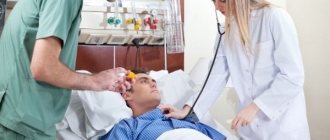A stroke is a critical condition for the body. It doesn’t matter which of its types a person has encountered (ischemic, hemorrhagic), at this moment his brain suffers from a lack of oxygen, the cells and functions of this most important organ gradually fade away. The further outcome depends on the speed of medical care provided and the individual health characteristics of the victim. But in the vast majority of cases, a stroke results in disability (or death). That is why people who have suffered this critical condition are so interested in issues related to obtaining disability after a stroke.
Can disability be established after a stroke in 2021?
This formulation in itself is not entirely correct. It makes no difference for what reason (stroke or, for example, injury) a person has lost the ability to function in society in a way that is considered normal. Medical and social examination, the decision of which determines the registration of disability (and, accordingly, the definition of its group) is based on the following regulatory act - Federal Law of the Russian Federation No. 181 “On the social protection of disabled people”. Here are the criteria (related to both the physical and mental state of health of the applicant for disability) that give the right to receive disability and, accordingly, to cash additional payments, social benefits and other support from the state.
In other words: yes, disability can be established after a stroke. If this acute dangerous disease has led to impairment of the patient’s health, in accordance with the standards of Federal Law No. 181.
Disability after a stroke: who has the right to receive
Anyone who has had a stroke is eligible for disability if their health subsequently meets any of the following criteria:
- Total or partial limitation of the ability to move independently;
- Loss or significant deterioration in spatial orientation ability;
- Loss of control over one's own behavior;
- The emergence of dependence on the help of third parties (relatives, employees of medical institutions and social services, hired assistants);
- Loss of self-care abilities at home, performing basic daily activities;
- Significant deterioration in hearing, vision, coordination, memory, and communication abilities.
Disability after stroke: which group
Based on the results of a meeting of the medical and social commission, a stroke victim may be assigned one of three existing disability groups. The size of cash payments, the range of social benefits, and the possibility of access to work depend on the group.
First disability group after stroke
The first group is intended for people who have developed serious and persistent functional impairment as a result of a stroke. As a rule, these people need help in almost every matter.
They cannot move independently (or do so with great difficulty). They are not able to perform basic manipulations in everyday life. They have significant speech, motor, mental, behavioral and other deviations. The first group is necessarily assigned to persons who are bedridden patients and/or in a state of vegetation.
Second disability group after stroke
This group is intended for people who have persistent impairments in the basic functions of the body: problems with movement, speech, bladder or bowel control, etc. The main condition is that the patient is still able to move independently and has not completely lost the ability to self-care.
Third group of disability after stroke
This group is intended for stroke survivors whose health has been affected, but not as significantly as in the case of the first two groups. In people from the third group, dysfunctions are also persistent, but are characterized by moderate severity.
Such a person can even continue to perform his work duties, but the working conditions, according to the current legislation, are somewhat easier for him. Some types of work are completely prohibited (driving a car, work requiring increased concentration, etc.).
Disability after stroke in special cases
Let's consider several special cases of disability after a stroke.
Disability after a stroke for a pensioner
The procedure for obtaining disability for a pensioner is practically no different from how this status is assigned to an employed citizen. The only difference is that the package of documents for the commission includes a pension certificate and documents confirming the amount of the pension received. The disability benefit will be calculated not based on the amount of labor remuneration, but with a focus on the amount of the person’s pension payments.
Disability after a stroke for a bedridden patient
A special feature of disability registration in this case is the victim’s inability to move. Accordingly, such a patient requires a proxy who carries out all actions of a bureaucratic nature (going to authorities, collecting documents, etc.) on his behalf. The right of such a person to act in the interests of a bedridden patient is confirmed by a notary.
However, the authorized representative still cannot undergo examination for the patient. Therefore, in the event of a complete restriction of a person’s movement, there are two options for action:
- Calling specialists to your home (which happens most often);
- Delivery of the patient to the hospital using special equipment and special transport.
Disability after stroke for the unemployed
The peculiarity of assigning disability to an unemployed person who has suffered a stroke is that such a person must register with the Center for Labor Protection (if he was not previously registered there). The difficulty lies in determining the amount of disability benefits, because the person did not receive a salary, therefore, calculating its amount is problematic.
It matters how long a person remained unemployed. It’s one story if he lost his job as a result of an accident and disability, and a completely different story if the person, in principle, was not officially employed for a long period of time.
Registration of disabled status for a bedridden patient
If the patient has suffered a severe stroke, after which he becomes recumbent due to the presence of severe neurological symptoms and loss of motor functions, an order for issuing certificates for medical examination is made to a trusted person.
To receive a referral for a commission, relatives go to the clinic at their place of residence to a local doctor, who examines the patient at home. To obtain disability, a necessary condition for referral to a commission is an inpatient examination of the patient.
If the patient was hospitalized, the attending physician makes an extract and prepares a referral. At the request of relatives, experts go to the home to examine the bedridden patient. The patient's authorized representative provides the commission with documents confirming his identity and work record.
After a collegial examination, the commission makes its decision. A document recognizing a bedridden patient as disabled can be received by a relative or proxy.
Important! The presence of severe consequences of a stroke is an indication for registration of disability, since further rehabilitation treatment requires the use of expensive medications, which a disabled person can purchase free of charge, guided by law.
How to apply for disability after a stroke in 2021
Now let’s take a closer look at the algorithm for registering disability: where to go, what steps to take, the composition of the package of necessary documents, etc.
Where to go to apply for disability after a stroke
To register a disability, you must take the following steps.
- Make an appointment with a therapist at a clinic near your place of residence. Talk about existing symptoms and impairments, report your intention to become disabled.
- Be examined by a physician and referred by several specialists. As a rule, this is a cardiologist, neurologist, psychiatrist, endocrinologist, otolaryngologist.
- Undergo hardware examinations (ultrasound, ECG, cardiac cardiogram, MRI, etc.) and pass the necessary tests (blood/urine).
- With the results of these studies, visit the Medical and Social Expertise. Appearance is required with a passport.
- Complete an application for a disability group.
- Be examined directly by specialists who are members of the medical and social commission. They also need to be told directly about the existing dysfunctions of the body, the presence of difficulties in caring for themselves in everyday life. This information influences the authority's decision.
What documents are needed to register disability after a stroke?
The package of documents required for registration of disability includes the following papers:
- A written application from the patient regarding the collection of the commission;
- Referral from the attending physician for a medical and social examination;
- An outpatient card that traces the medical history;
- Discharge from the hospital (if the application is submitted immediately after treatment);
- Conclusions and extracts from individual specialist doctors who examined the patient;
- Results of laboratory tests and hardware diagnostics;
- Photocopies of passport pages;
- For a previously working citizen - photocopies of work book sheets;
- Certificate of income from the place of work for an employed patient.
Important!
The absence or improper execution of any documents is one of the common reasons for refusing to grant a person the status of a disabled person. Therefore, it is so important not to let the process of collecting a package of documents take its course, but to control every stage.
Documents for obtaining disability
All data confirming the presence of a stroke in the patient will be required.
The patient or his relatives must collect the following documents:
- Passport;
- Insurance policy;
- Information about education, place of work and position held;
- Information about the legal representative (if any);
- Application for conducting ITU;
- Pension certificate (if available);
- Results of the last medical examination;
- Extract and data from the medical history, which describes the diagnosis, methods and effectiveness of therapy;
- Information about completed rehabilitation programs and sanatorium-resort treatment for stroke (if any);
- Referral to ITU.
IMPORTANT. Registration of disability has a great connection with the very fact of the presence of the disease, therefore, to conduct an examination, data is required only from the medical history that was recorded during hospitalization for a stroke. If at the time of illness the person was not hospitalized (did not see a doctor), registration of disability will be fraught with significant difficulties.
When to confirm disability after a stroke (re-examination)
There is such a thing as re-examination deadlines. That is, the commission must periodically confirm the status of a disabled person. For the second and third groups, such re-examination is annual. For disabled people of the first group, it is carried out every two years.
As a result, the disability group may be changed (for example, from first to second or from second to third). Or the disability is recognized as lifted (and, accordingly, cash payments and benefits automatically stop).
In what cases is disability removed after a stroke?
The body has enormous potential for recovery. When the critical stage (stroke and some time after it) is over, a recovery program is started. Thanks to this, as well as competent rehabilitation, functions are gradually returning. A person regains (albeit partially) lost abilities. Typically, restoration of capacity is observed in the third group (less often in the second and very rarely in the first).
If, during the re-examination, the commission members recognize the patient’s complete recovery and his ability to return to his usual work, the disability is removed.
Terms of re-examination
Depending on what disability group was assigned to the patient, the timing of re-examination will be different, such as:
- if disability group 1 is established, re-examination is scheduled after 2 years;
- in case of disability group 2, re-examination is scheduled after 1 year;
- for disability group 3, re-examination is scheduled after 1 year.
After this period, the patient must appear for a re-examination to confirm the disability group. Sometimes a disability can be changed up or down or removed altogether. The ITU gives its opinion based on a referral from a medical institution, examination of medical documentation and assessment of the patient’s functional status.
Individual rehabilitation program for disability after stroke
The individual program involves the patient independently purchasing (at his own expense) the technical equipment necessary for rehabilitation and treatment (medicines, crutches, wheelchairs, blood pressure monitors, etc.). Receipts must be kept. After which, upon submitting a corresponding report to the territorial body of the Social Insurance Fund with payment documents attached, the disabled person receives compensation, that is, a return of the money invested.
It should be noted that the list of technical means for each group is different.
A person is included in an individual rehabilitation program after examination by a medical commission.
What benefits does disability after a stroke entitle you to?
The list of benefits provided to people who have lost their legal capacity after a stroke is given in the table.
| Serial number | Name of benefit | Explanations |
| 1 | Sick leave | Sick leave is repeatedly extended. The maximum period is 10 months, and in the presence of surgical intervention - 12 months. All this time, the patient’s job remains with him and the employer does not have the right to terminate his employment contract. |
| 2 | Receiving medications | There are two levels of state support: federal and regional (the list of persons subject to free provision of medicines is determined by regional laws). So, the following categories of persons have the right to preferential medicines:
|
| 3 | Rehabilitation and treatment in sanatorium-resort institutions | A free trip to the sanatorium is provided to those patients in whose regions such a disease as a stroke gives the right to this (which is enshrined in regional laws). At the federal level, persons listed in federal laws have the right to free stay in a sanatorium: disabled people, WWII veterans, immediate relatives of deceased veterans, etc. |
| 4 | Assignment of disabled status | The status itself gives the right to a wide range of benefits (including at the federal level) and cash payments. Disability is assigned if treatment does not lead to complete restoration of lost body functions. |
If group registration fails
The procedure for appealing a decision begins with writing an application, which is submitted to the institution conducting the examination. Be sure to write down the incoming application number. This will help monitor the status of its consideration.
According to the law, after 3 days your application is forwarded to the ITU main office. Here they examine him and set a date for a new examination. The period for consideration of the application should not exceed 1 month.
You can also turn to the court for help. This is an extreme option, since his decision is considered final and cannot be revised.
What to do if disability is not determined after a stroke
It happens that a medical and social commission has issued a negative verdict on the issue of assigning disabled status to a person who has suffered a stroke. Why this happens and what to do – read below.
When does a medical commission have the right to deny disability after a stroke?
Usually a refusal is issued in two cases:
- The patient's condition does not meet the criteria of existing disability groups;
- During the meeting, fictitious documents were discovered (in this case, the applicant falls under the Criminal Code of the Russian Federation for forgery of documents).
How to appeal a refusal to grant disability after a stroke
An appeal of the commission’s decision occurs in two cases:
- The patient does not agree with the assigned disability group;
- The patient does not agree with the refusal to assign disabled status.
In the first case, an application for re-examination is submitted to the same commission. The case is being reviewed within a month.
In the second case, a person will have to contact a medical and social examination of a higher level (for example, the Federal Bureau of Medical Examination). If a third appeal is needed, the applicant for disability will already go to court and should take care of a lawyer and obtaining the results of a medical examination at an independent medical institution.
Stages of registration
The first stage is a medical and social examination - only with its conclusion can relatives move on, contacting the authorities responsible for social security. Doctors at the place of hospitalization can only refer the patient for such an examination; the Medical and Social Expert Commission directly deals with this.
There are several stages in this process, which consist of a final examination of doctors (both general practitioners and highly specialized specialists), taking tests and preparing all the documents necessary for registration.
Design rules:
- relatives are the patient’s representatives if he is unable to enter into agreements due to incapacity;
- the registration procedure is possible only after the decision of the expert commission;
- In addition to medical papers, the patient will need other documents indicating his work experience and other factors important for determining the amount of benefits.
And also read on our website: Ischemic cerebral stroke - consequences, prognosis and treatment
